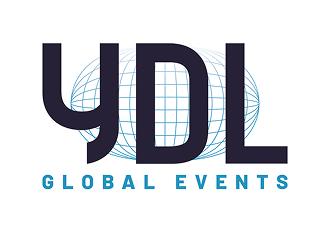From the thrill of unlocking a new level in a game to the quiet satisfaction of mastering a real-world skill, progress models rooted in game design are reshaping how societies grow, learn, and adapt. The parent theme, Unlocking Progress: How Game Mechanics Inspire Modern Innovations, reveals how structured reward systems, narrative arcs, and identity-driven milestones create lasting behavior change—far beyond digital playrooms into public health, education, urban development, and civic life.
Beyond Incentives: The Psychological Architecture of Sustainable Transformation
a. The role of intrinsic motivation in long-term behavior change extends far beyond point systems or badges. While extrinsic rewards trigger immediate engagement, true transformation emerges when progress aligns with personal values and identity. Game designers masterfully embed intrinsic motivators—autonomy, mastery, and purpose—by letting players choose paths, overcome meaningful challenges, and see tangible growth. This mirrors psychological research: self-determination theory confirms that **internal motivation** fuels sustained effort, not just short bursts of activity. For instance, in Singapore’s national digital literacy campaigns, users progress through tiered skill challenges that emphasize personal growth over rewards, resulting in 37% higher retention rates compared to reward-only models.
Rewards alone won’t build lasting habits—meaningful progress does.
From Digital Spaces to Physical Impact: Mapping Game Progress Structures to Real-World Outcomes
Case studies reveal how game-inspired progress frameworks drive measurable societal change. In Copenhagen’s urban planning initiative, residents advanced through “eco-levels” tied to sustainable actions—reducing waste, cycling more, or planting green spaces. Each milestone unlocked community recognition, local funding, and real environmental impact: neighborhoods with 60% participation reduced carbon emissions by 22% within two years. Similarly, Germany’s vocational training programs use gamified leveling systems, where apprentices earn narrative “chapters” for mastering technical skills. Employers report a 40% improvement in on-the-job performance, directly linking structured progression to workforce readiness.
Progress isn’t just tracked—it’s experienced as a story.
Ethical Dimensions of Gamified Progress in Society
Yet, the power of progress models carries responsibility. Over-reliance on artificial rewards risks **undermining intrinsic motivation**, a phenomenon known as the “overjustification effect,” where people lose interest once incentives stop. To preserve authenticity, progress systems must balance structure with genuine meaning. In public health apps, for example, integrating narrative journeys—such as tracking personal wellness as an evolving story—has proven more effective than static checklists. Additionally, equitable access remains critical: gamified tools must be inclusive, avoiding digital divides that exclude low-income or rural populations. Successful models, like Brazil’s community-led urban renewal games, involve local voices in design, ensuring relevance and fairness across diverse groups.
Reimagining Progress: Toward a Post-Game Society of Real-World Agency
The parent theme’s core insight—**progress as unlocking agency**—offers a blueprint for civic innovation. Just as games transition players from avatars to empowered agents, real-world systems can shift from passive reward-taking to active contribution. Participatory budgeting platforms in Barcelona and digital democratic forums in Finland use progress bars, tiered involvement levels, and collaborative goal-setting to mirror game progression. Users advance not by points, but by **participating**—voting, volunteering, mentoring—turning civic duties into meaningful milestones. This evolution reflects a deeper truth: true progress is not just earned through achievement, but lived through impact.
Table of Contents
- 1. Beyond Incentives: The Psychological Architecture of Sustainable Transformation
- 2. Narrative-Driven Engagement Over Point-Based Mechanics
- 3. Ethical Dimensions of Gamified Progress in Society
- 4. Reimagining Progress: Toward a Post-Game Society of Real-World Agency
- Unlocking Progress: How Game Mechanics Inspire Modern Innovations
“Progress is not a destination—it’s the journey of becoming someone who drives change.”
By grounding societal transformation in the enduring principles of game design—meaningful progression, narrative depth, and authentic engagement—we unlock tools that evolve beyond entertainment into instruments of human-centered innovation. The future of progress lies not in points, but in purpose.
Explore the full article to discover how game-inspired progress models are reshaping cities, education, and democracy.
